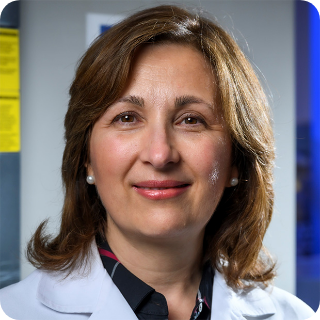

nPOD KQ group: Understanding the diversity of T1D

A critical issue in type 1 diabetes research is the recognition that many studies of epidemiology, natural history, pathogenesis, intervention and clinical progression are impacted by diversity of race/ethnicity, age, sex and other features. We also acknowledge that many studies of type 1 diabetes to date predominantly represent children from European ancestry populations, from USA and European based populations. There are signals across the literature that there may be important differences in pathogenesis, and possibly in treatment of type 1 diabetes that vary by these markers of diversity. In this group we aim to review evidence of differences by diversity of human populations from the T1D literature, and from nPOD samples. We also aim to investigate how further/future studies within nPOD may further facilitate understanding of T1D pathogenesis and the impact of diversity on T1D prediction, prevention, diagnosis and treatment.
Leaders

Dr. Maria Redondo
Baylor College of Medicine, Texas Children Hospital, US
Dr. Redondo is a professor of Pediatrics at Baylor College of Medicine and a Pediatric Endocrinologist at Texas Children’s Hospital in Houston, Texas. She is actively involved in the NIDDK-funded Rare and Atypical Diabetes Network (RADIANT) and the American Diabetes Association’s Precision Medicine in Diabetes Initiative. Her research aims to dissect the heterogeneity of diabetes towards advancing precision medicine. Specifically, she seeks to incorporate genetic risk scores into predictive models for type 1 diabetes and utilize genetics to enhance the selection of candidates for prevention trials in type 1 diabetes. Dr. Redondo also focuses on leveraging genetics for timely and accurate diagnosis of diabetes types in children from diverse ancestral backgrounds, aiming to improve clinical outcomes.

Dr. Richard Oram
University of Exeter, UK
Dr. Richard Oram is an associate professor and a Diabetes UK Harry Keen Fellow, specializing in Type 1 diabetes at the Institute of Biomedical and Clinical Science and NIHR Exeter Clinical Research Facility. His research focuses on understanding the biology of beta cell loss in T1D and the clinical implications of persistent of beta cell function on complications. He sudies extremely early onset type 1 diabetes (EXET1D), diagnosed in children under 1 year old, aiming to uncover why autoimmunity can manifest so early in infants. He has also developed a cost-effective and straightforward method to assess genetic risk in type 1 diabetes – a T1D genetic risk score (T1D GRS). This is used as a diagnostic test to differentiate type 1, type 2 and monogenic diabetes, and also aids in predicting disease onset.